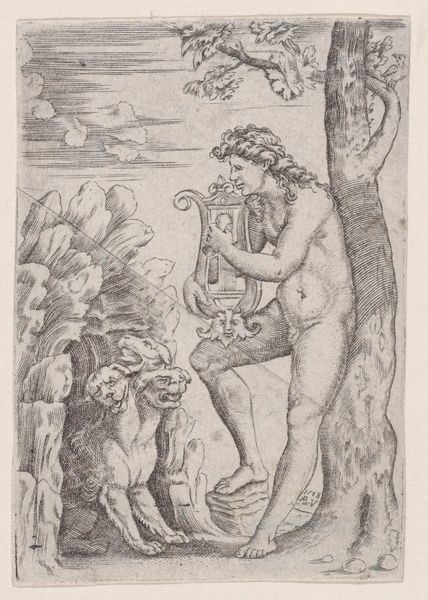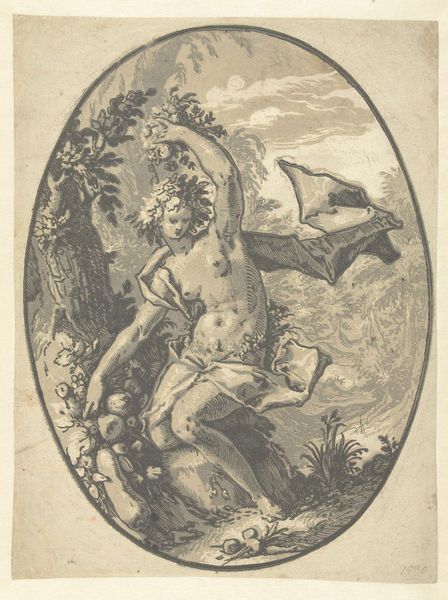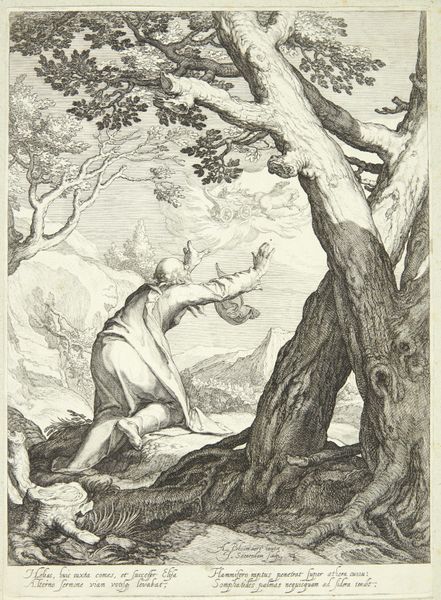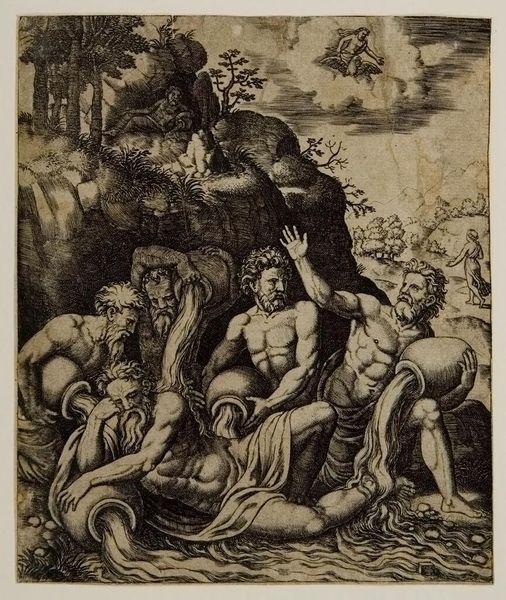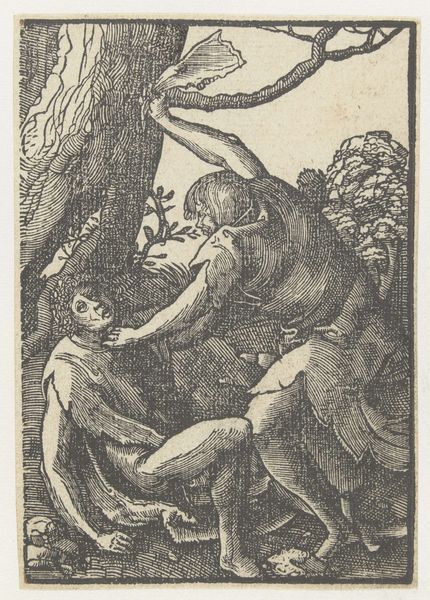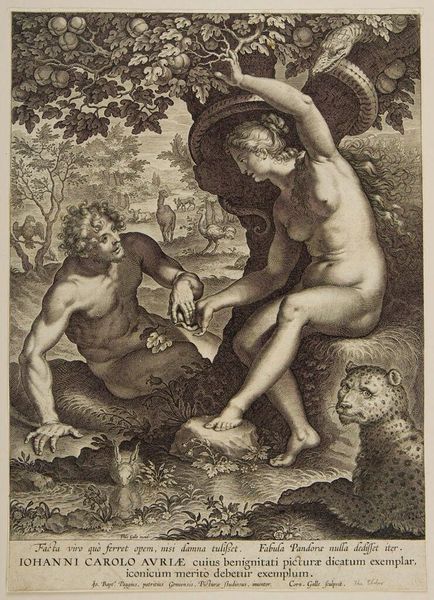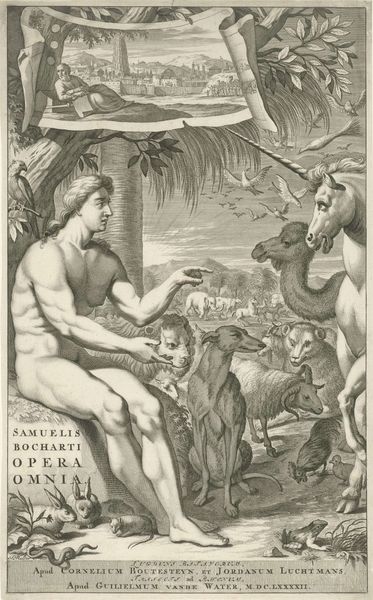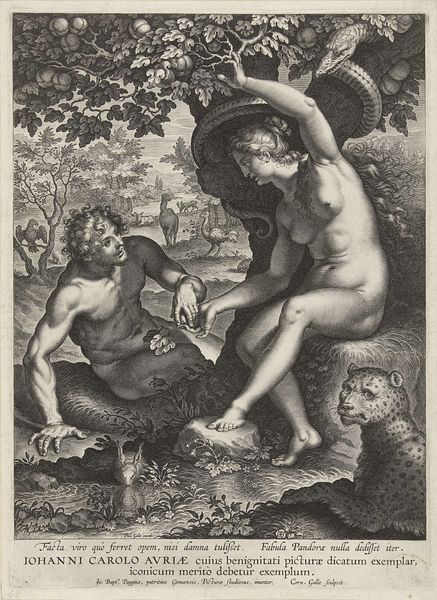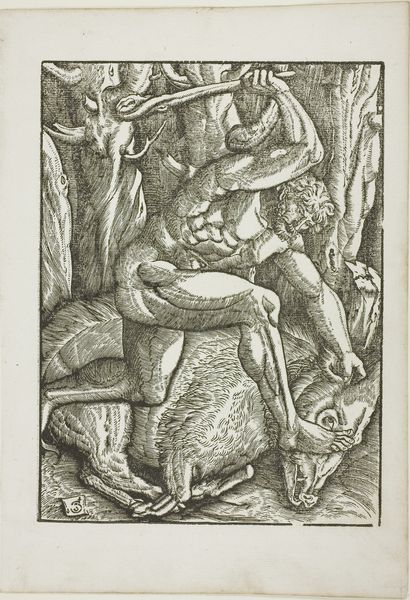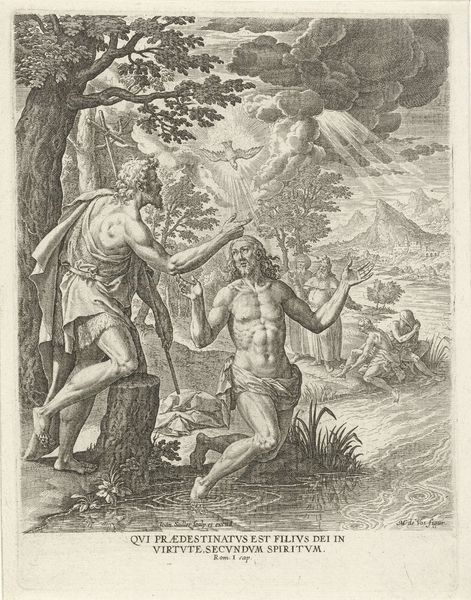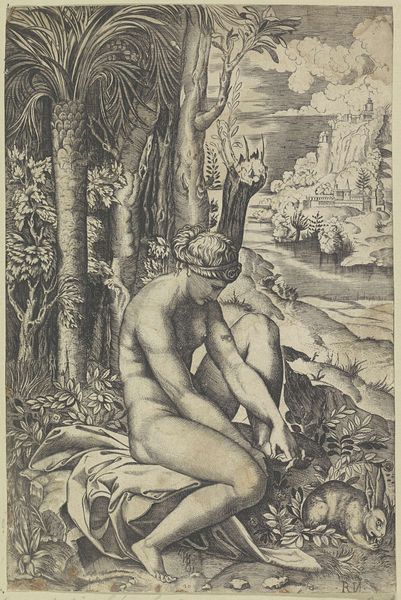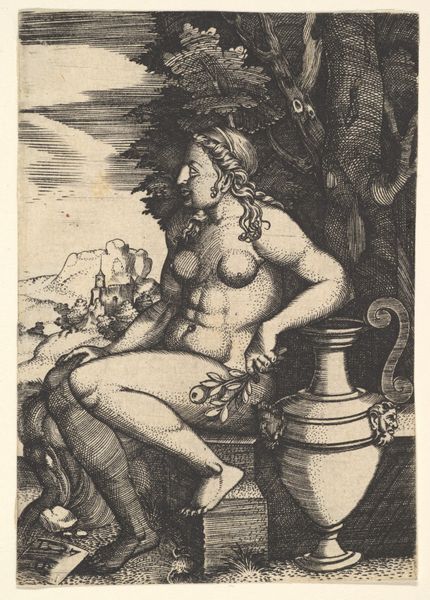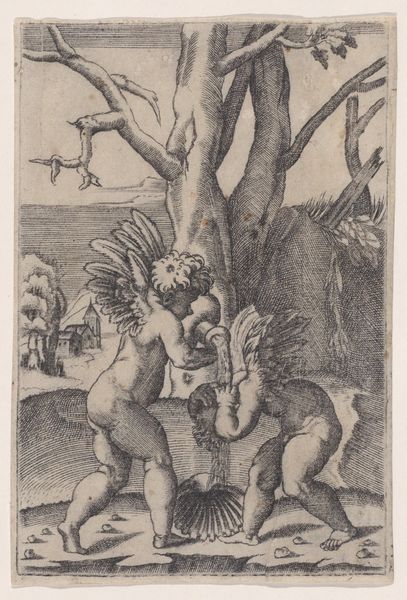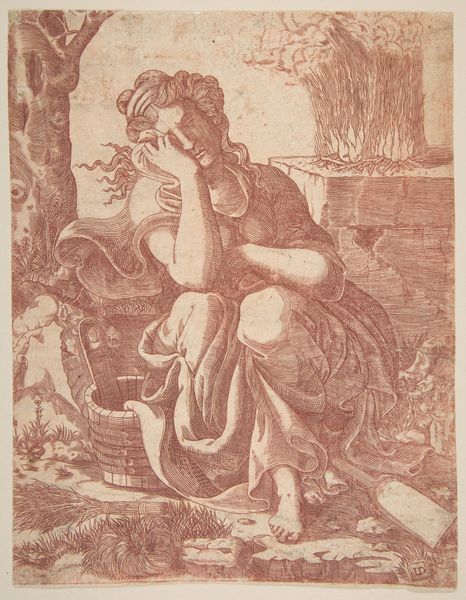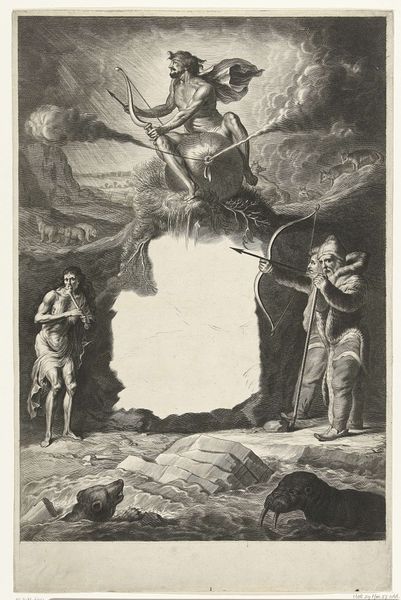
drawing, coloured-pencil, pencil
#
drawing
#
coloured-pencil
#
pencil sketch
#
landscape
#
figuration
#
coloured pencil
#
pencil
#
symbolism
#
watercolour illustration
#
history-painting
Copyright: Public Domain: Artvee
Curator: Elihu Vedder’s piece, "The Mighty Mahmud," created between 1883 and 1884, showcases Vedder’s adept use of colored pencils to explore themes of power and spirituality. Editor: Well, my first thought is that it feels ethereal, like a dreamscape or a forgotten myth bubbling up from the collective unconscious. The muted tones and the flowing lines... they create a sense of otherworldly grace. Curator: Indeed. The composition presents a dichotomy, doesn't it? We have the strong, almost classical figure of Mahmud juxtaposed against these cowering figures at the bottom and the inscription. Semiotically, water functions as purification or absolution in this context, or is it something else entirely? Editor: Right, the water cascading from his urn. It reads as purification, absolutely, but with a hint of sadness or resignation in his downward gaze. What I get from the written words as a companion to this sketch, placed between Mahmud and these dark supplicants is an impression that those he scatters he actually feels some compunction for. The lines blur, a kind of empathy and mercy as qualities to contrast from sheer ruthless force and power... Curator: It is intriguing how Vedder’s personal blend of symbolism ties into broader trends within Symbolist art itself, a current interested in esoteric subject matter, that very kind of reaching beyond the visible world for inner truths. We see that echoed both formally and thematically. It’s like a meditation. Editor: Exactly. The way the colors wash over the figures lends to a kind of vulnerability to what are otherwise presented as mighty concepts, no? But the question I think Vedder really asks the viewer to sit with in the end: Is divine authority necessarily intertwined with absolute dominion, or something more merciful instead? Curator: That really gives us something to reflect on here. Thank you. Editor: Indeed, this definitely leaves us more to think about the nuances of the human condition, and the burden of influence as a source of inspiration, well beyond technique and craft, so it definitely resonated.
Comments
No comments
Be the first to comment and join the conversation on the ultimate creative platform.
